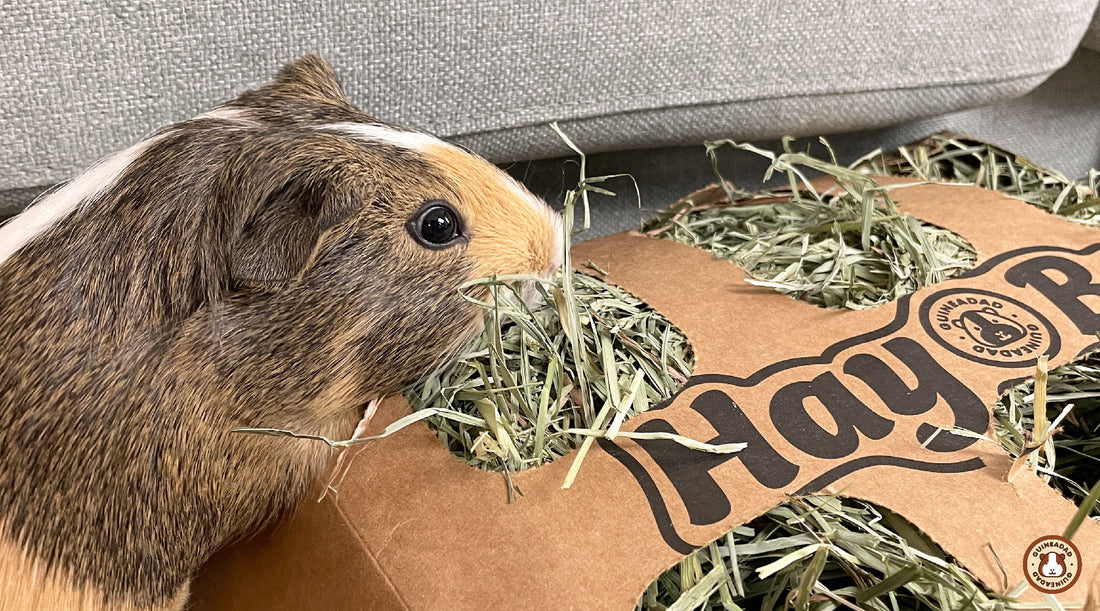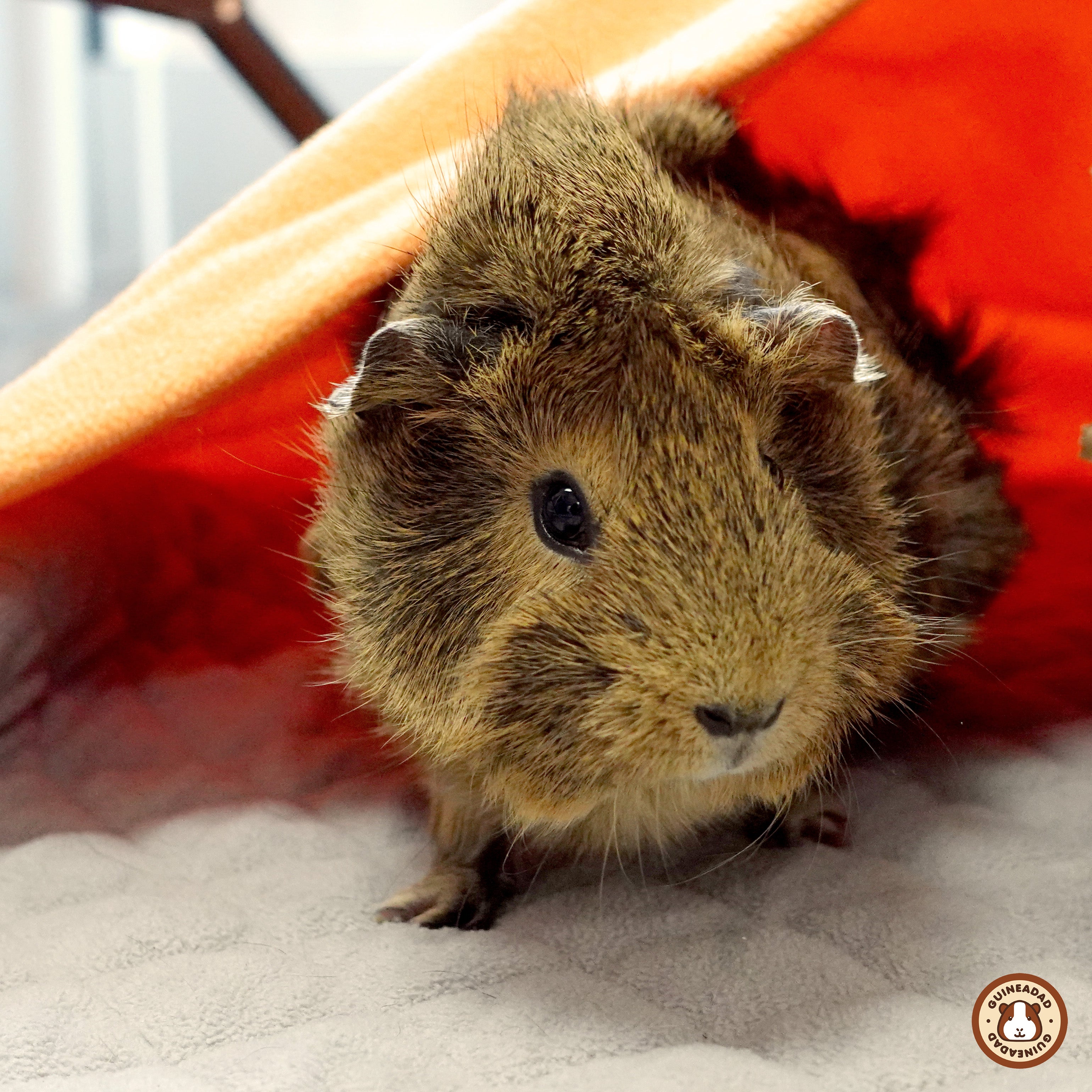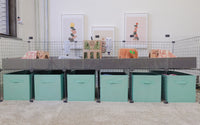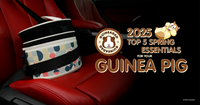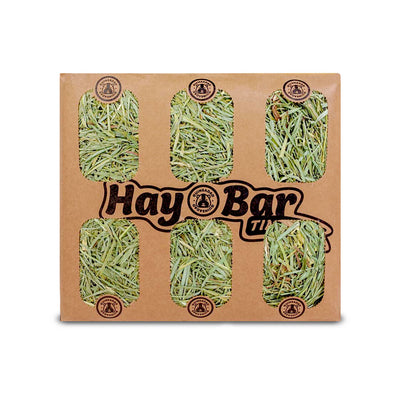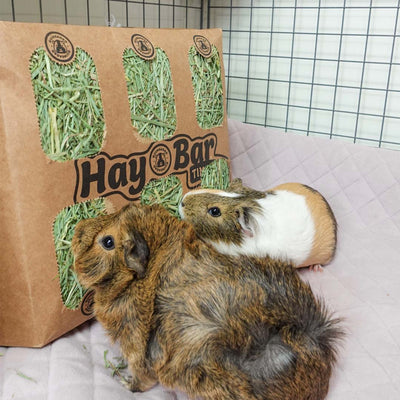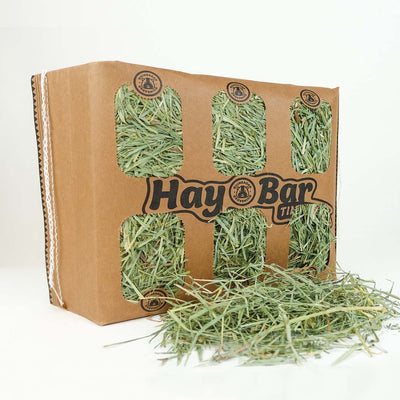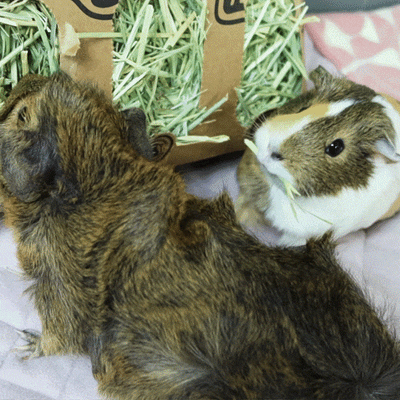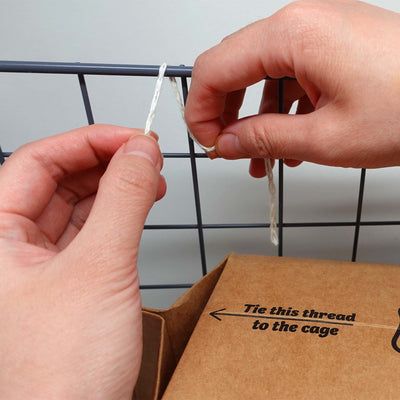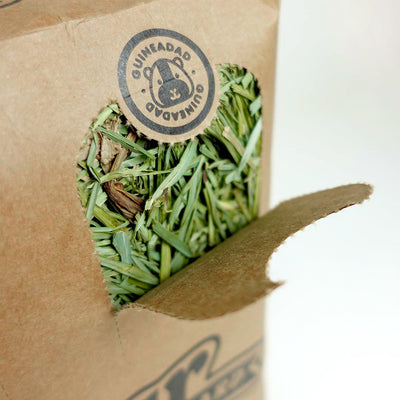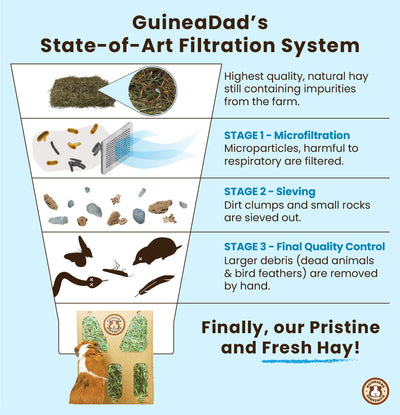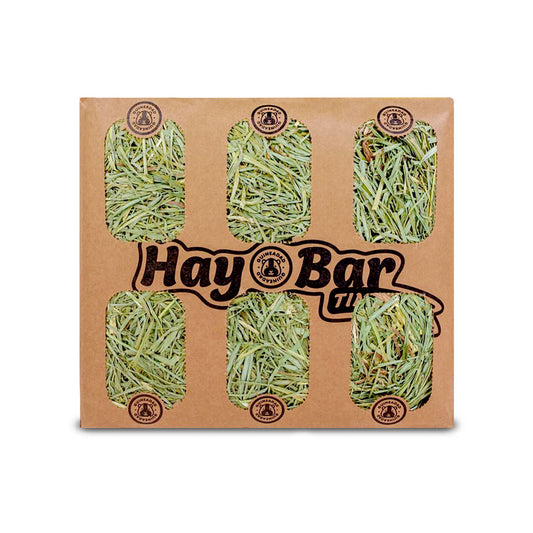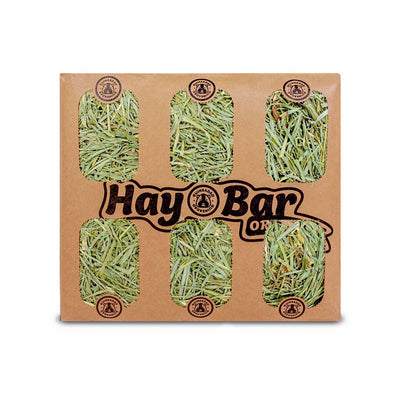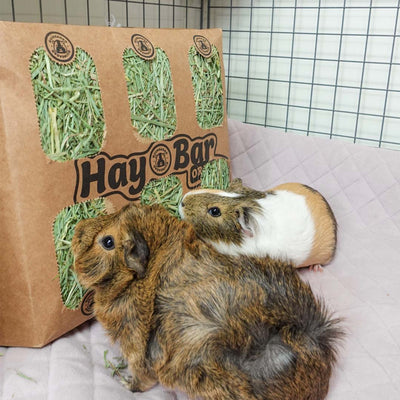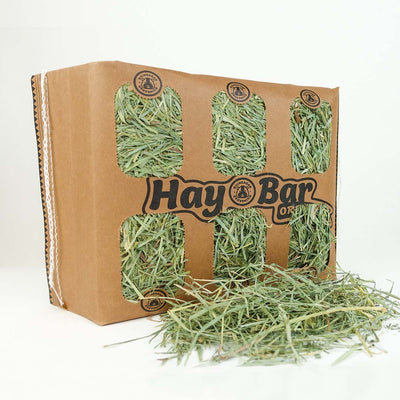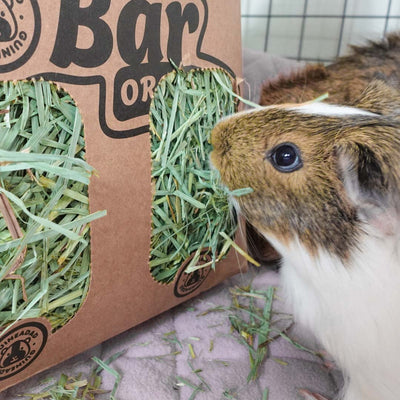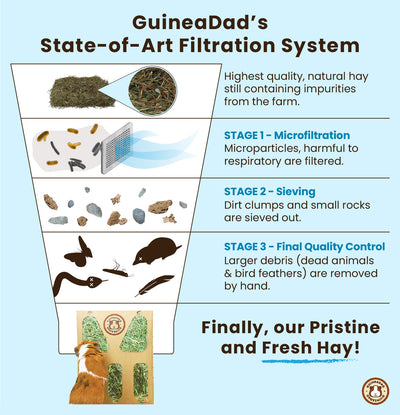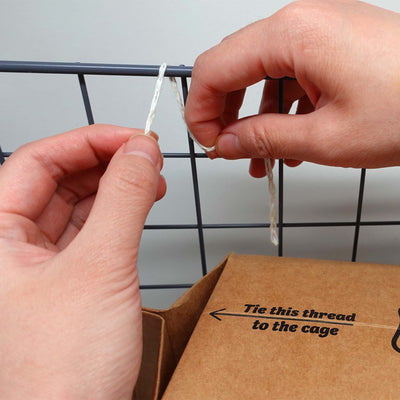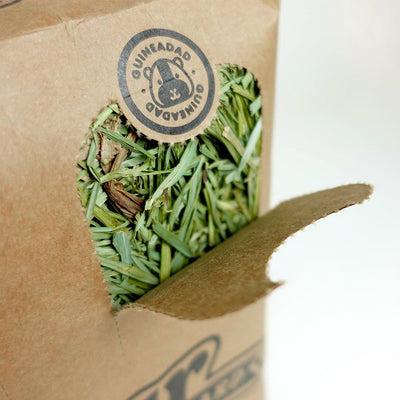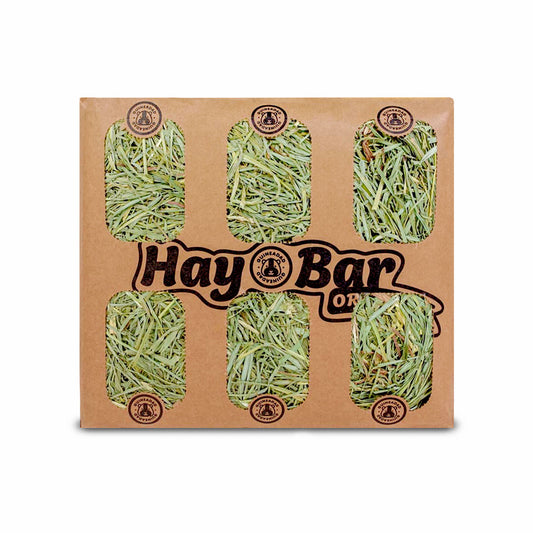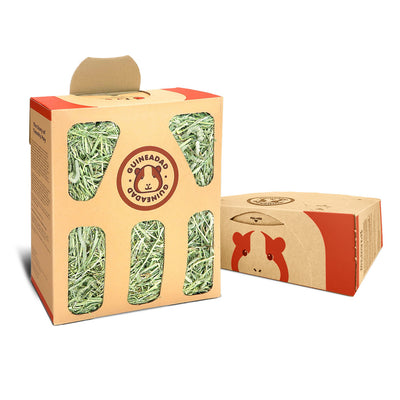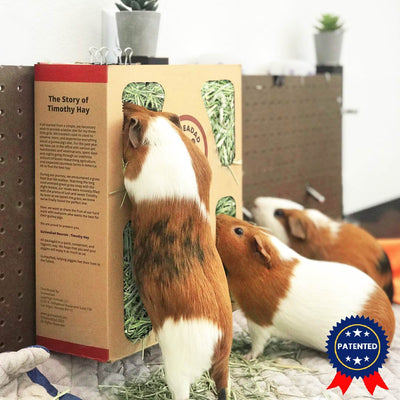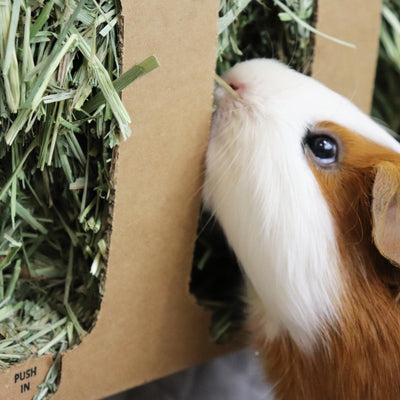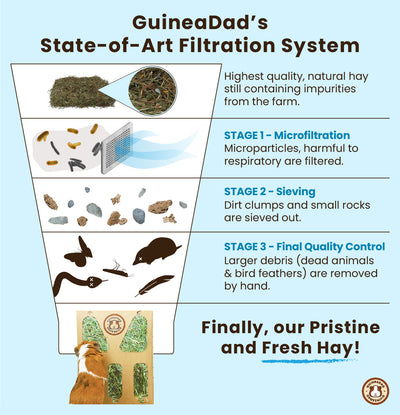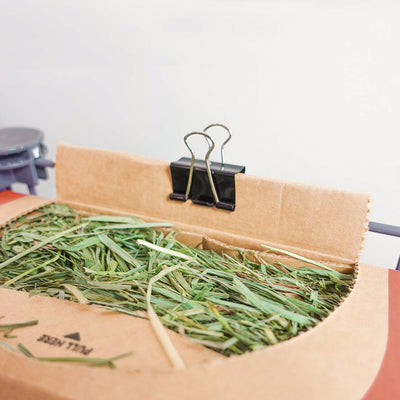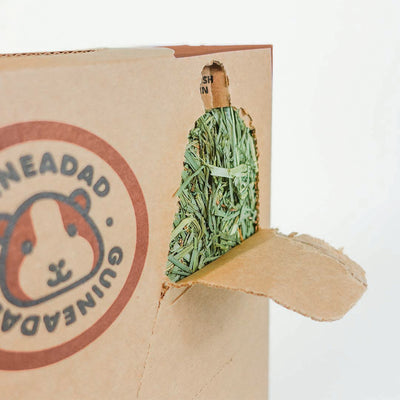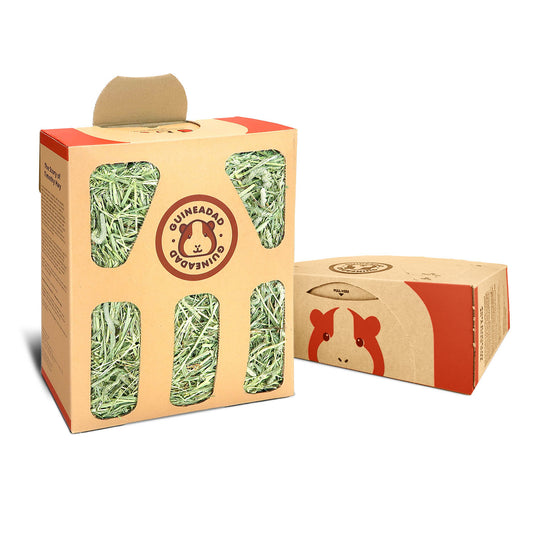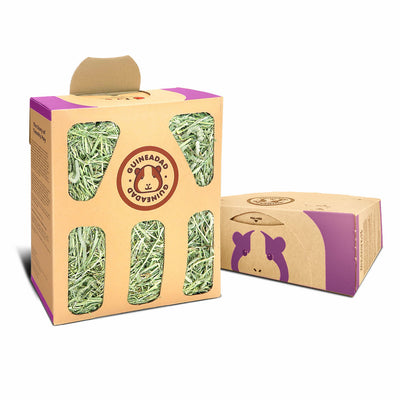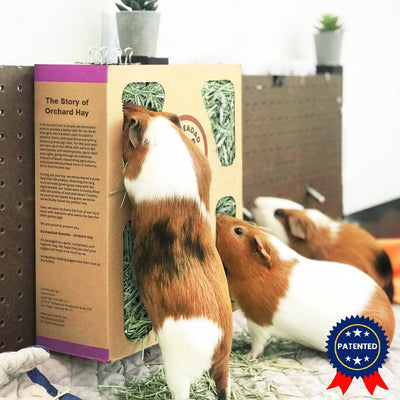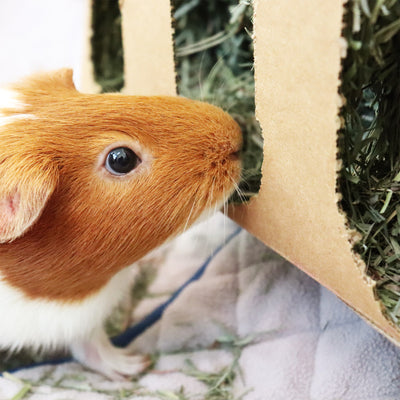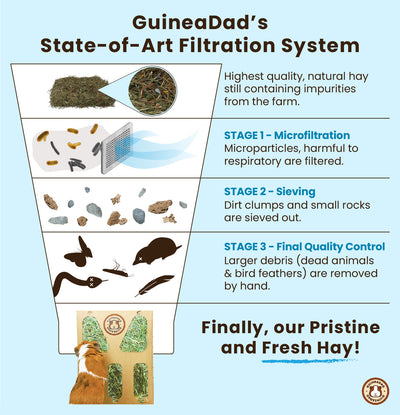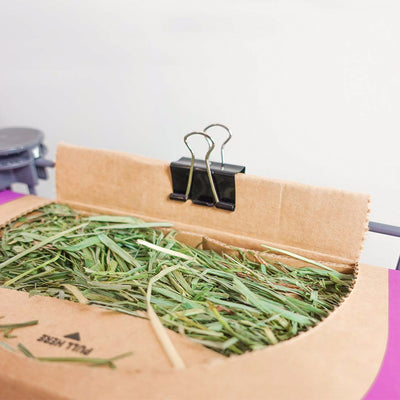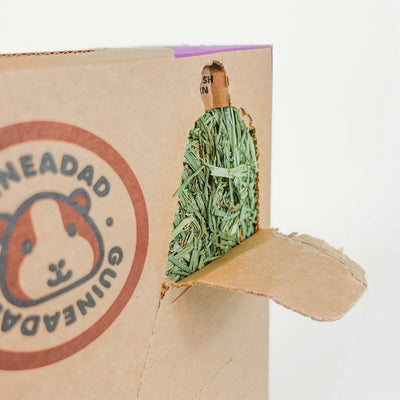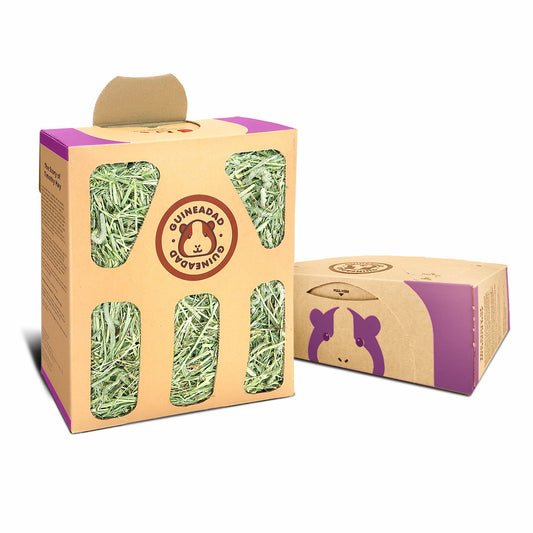Unfortunately, as unpleasant as it is, impaction is something that can happen to any guinea pigs, but fecal impaction especially tends to occur in older boars. It’s important to know all the not-so-great details in order to properly be able to identify the signs and get your guinea pig treatment as soon as possible.
In this post, we’ll be talking about both fecal impaction, and general gastrointestinal impaction that guinea pigs can suffer from. Both have very negative effects on your guinea pig’s health and overall quality of life.
The sooner you’re able to get your guinea pig the help that they need from your veterinarian, the sooner they can be relieved from this uncomfortable and potentially dangerous condition!
What is fecal impaction in guinea pigs?
Generally, impaction is something that occurs when there is something blocking in a part of a guinea pig’s gastrointestinal tract—this can be anywhere along the tract, from the entrance or exit of the stomach, somewhere along the intestines, or in the colon.
There are several different things that can cause these blockages, including clumps of improperly chewed or digested food, dry clumps of fur from barbering, or even other non-food items.
When it comes to fecal impaction, it’s defined by the build-up of feces in the anal sack of a guinea pig. This occurs because the muscles of the anus are weakened and the guinea pig is no longer able to release the poop. Again, this is something that is more common in male guinea pigs, or boars.
The exact reason for this still isn’t fully understood, but some medical experts believe it’s because the increased size of the boar testicles and the fat deposits in that area prevent the anal muscles from working properly. The build-up of poop then continues and increases until it causes the impaction.
What are the symptoms of impaction and overall fecal impaction?
When it comes to general impaction of the gastrointestinal tract, a guinea pig will be unable to pass food through the digestive tract. This means that the food they are wearing will continue building up in the stomach and/or intestines and cause painful and uncomfortable bloating. The guinea pig may even have diarrhea since the solid waste can’t escape and only the fluids can.
Related: What causes diarrhea in guinea pigs?
This can oftentimes cause guinea pigs to lose interest in eating, cause them to only be able to pass diarrhea or stop pooping altogether, or they may have a bloated and/or distended abdomen. In this case of GI impaction, it can become quite life threatening as there are cases where the obstruction can lead to a rupture of the intestines or the stomach.
Most of the time, guinea pigs suffering from fecal impaction don’t show any signs in their overall health, but you may notice a change in behavior when they’re attempting to poop!
Regardless of which kind of impaction that your guinea pig may have, it’s important to visit your veterinarian as soon as possible in order to distinguish which they have, and get the proper treatment as soon as possible.
How is impaction diagnosed?
When it comes to overall gastrointestinal impaction, one of the first things your veterinarian will do is give your guinea pig some kind of pain relief as this condition is extremely painful and uncomfortable for guinea pigs, and they may also provide extra hydration in the form of intravenous fluids. To confirm a blockage or obstruction, your vet will also take X-rays to look for the location of the impaction—however, not all impactions will show up on the X-ray, so other tests will be performed in that case.
Related: Guinea Pig Poop Chart
In fecal impaction, this is something that can be diagnosed by your vet doing an examination and looking into the anal cavity of your guinea pig.
How to treat impaction in guinea pigs
For general gastrointestinal impaction, your veterinarian will first observe your guinea pig and see if the extra fluids and pain relief medication have any effect on your piggy’s condition. In some cases, these two methods of treatment can be enough for a guinea pig to pass the impaction without any further assistance. In other more severe cases, the guinea pig may need surgery to remove the blockage.
When it comes to fecal impaction, your vet will gently flip your guinea pig onto his back and apply a small amount of mineral oil inside the anus to use as lubrication. Your vet will then gently push down on the bottom side of the anus and ease the impacted mass out.
Keep in mind that this is a temporary measure and that this is likely to occur again—this means that this is something that will have to be done each time it happens!
If you’re not squeamish, you’ll be able to perform this procedure on your own at home once your veterinarian teaches you the proper way to do it!
How to prevent fecal impaction in guinea pigs
The best way that you can prevent your guinea pigs from suffering from either kind of impaction is by ensuring that your guinea pig’s diet is balanced and healthy, while increasing fiber intake.
Remember the ideal healthy guinea pig diet is one that includes unlimited amounts of hay that is provided at all times, as well as plenty of water for hydration, around a cup of fresh vegetables per day, a small amount of pellets, and the occasional piece of fruit as a treat.
If you find that constantly refilling your guinea pig’s hay piles is tiresome or you’re unable to keep up with your guinea pigs’ hay consumption, it might be time to switch to feeders and racks that you can place in several different spots in the guinea pig cage.
We generally don’t recommend serving guinea pigs hay in piles in the first place! This is because this leads to not only a scattered mess, but exposure to more hay dust which can irritate your guinea pigs’ respiratory tract.
While feeding your guinea pigs using hay racks and hay feeders can be a lot easier and more convenient than leaving hay in piles, the amount of harmful hay dust that is present is still the same. We recommend using the GuineaDad Hay Bar or GuineaDad Hay Box in order to eliminate this harmful dust from your guinea pig’s cage.
Not only is our hay microfiltered to remove all harmful dust and debris, but because of the way that it is packaged so densely, we’re able to help you reduce the amount of hay waste that usually comes with leaving hay in piles. Guinea pigs don’t like to eat soiled hay, so our packaging helps your piggies avoid that!
It’s so important that your guinea pigs are eating an abundant amount of food with fiber because their body needs to move food in and out of the body in a regular and consistent manner, and fiber is what powers this process.
If the impaction was caused by clumps of hair in the stomach from barbering, your guinea pig may not be stimulated enough. It’s important that your guinea pigs have plenty of hay to munch on all day as we’ve mentioned before, but it’s also important that they have other outlets for their curiosity and stimulation as well. To avoid your guinea pigs barbering themselves or their piggy companions, make sure there are plenty of toys and chewable items for them in their cage.
Your best option would be to utilize hideys that can be chewed on! This not only prevents them from eating their own hair, but it will keep them feeling safe and comfortable while also giving them the opportunity to maintain their teeth!
Our GuineaDad Queen’s Castle is a solid hardwood hidey created with your guinea pig’s health and safety in mind. Many other wooden hideys on the market are made with softwoods or other harmful wood variations such as plywood.
It’s vital that you note that softwoods are harmful to your guinea pig, especially in the cases of pine and cedar—both of these give off toxins that can eat at the linings of your guinea pigs’ respiratory tracts and make them even more vulnerable to respiratory infection.
You can also utilize cardboard hideys like our GuineaDad Crunchy Condo. These are made with virgin paper, food touch-safe ink, and non-toxic glue! Your guinea pigs can munch away without any worries, not only entertained but maintaining their teeth in a healthy and safe way.
In particular, when it comes to fecal impaction in older boars, it will be best to manually clean the anal pocket like we mentioned above. Depending on the severity of the condition, you may have to do this anywhere from one or two times a week, to twice daily.
Keep a close eye on your guinea pigs’ health!
You are your guinea pig’s first line of defense when it comes to their health and happiness—Guinea pigs can’t tell us when they’re not feeling well, so it’s vital that you’re noticing any changes in them whether it’s their behavior, eating habits, or otherwise!
The sooner that you’re able to notice the signs of any health issues, the sooner you’re able to get your guinea pigs the treatment that they need, and in turn reduce their suffering and discomfort. This way, your guinea pig can be happy, as well as healthy and safe!
Want to read more about your guinea pig’s health and how to prevent them from getting sick?
Check out these blog posts to learn more.


